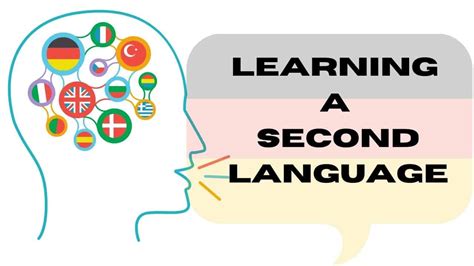Why Learning a Second Language is More Important Than Ever

In an increasingly globalized and interconnected world, the ability to speak more than one language is no longer just a useful skill; it's becoming a critical one. Whether you're navigating the professional landscape, exploring different cultures, or simply interacting with diverse communities, learning a second language offers a host of benefits that can enrich your personal and professional life. Here's why mastering another language is more important than ever before.
Enhanced Career Opportunities
In today’s competitive job market, employers are actively seeking individuals who can communicate in more than one language. According to a report by the Economist Intelligence Unit, companies with employees who are multilingual are better equipped to expand into international markets, strengthen customer relationships, and improve their global operations. From multinational corporations to startups, businesses are increasingly looking for people who can bridge communication gaps, build relationships with clients and partners abroad, and adapt to diverse cultural norms.
Learning a second language can open doors to new job opportunities, promotions, and international assignments. It also gives you an edge in industries such as diplomacy, tourism, international relations, healthcare, technology, and finance, where cross-cultural communication is key. In short, bilingualism is no longer a nice-to-have; it's a must-have in many fields.
Cognitive and Mental Benefits
The cognitive advantages of learning a second language are well-documented. Studies have shown that bilingual individuals tend to have better memory, improved problem-solving abilities, and sharper critical thinking skills. Multilingualism has also been linked to delayed onset of dementia and Alzheimer's disease. Learning and using multiple languages regularly strengthens the brain, encouraging neural plasticity—the brain's ability to reorganize itself by forming new neural connections.
Moreover, bilinguals are often more adept at multitasking and are better at filtering out irrelevant information. The constant switching between languages, or "code-switching," is a mental exercise that enhances cognitive flexibility, which is valuable not just in everyday life, but also in complex professional and personal situations.
Cultural Understanding and Empathy
In a world where migration, cultural exchange, and travel are more prevalent than ever, speaking another language allows you to connect with people in a deeper, more meaningful way. Language is a window into culture, and by learning a new language, you gain access to the literature, history, traditions, and ways of thinking that are unique to different societies.
This understanding fosters empathy, as it helps you see the world from multiple perspectives. You can engage with people from different backgrounds on a more personal level, whether you're traveling, working abroad, or simply meeting new people in your own city. Learning a second language not only helps you communicate but also demonstrates respect for others' cultures, helping to build stronger and more harmonious global relationships.
Boosted Travel Experiences
When you travel, knowing the local language can drastically enrich your experience. While many people around the world speak English, there's no substitute for understanding and speaking the local tongue. It allows you to engage more fully with locals, navigate unfamiliar places with confidence, and access authentic experiences that you might otherwise miss.
From ordering food in a restaurant to bargaining in a market, speaking the language enhances your ability to interact with people in a way that goes beyond superficial tourist experiences. It also enables you to understand cultural nuances, read signs, and participate in conversations, all of which make travel not only more enjoyable but also more meaningful.
Improved Communication Skills in Your Native Language
Learning a second language doesn't just improve your ability to speak in another language—it can also make you a better communicator in your native tongue. By studying grammar, sentence structure, and vocabulary in another language, you develop a stronger grasp of your own language’s syntax and usage.
Additionally, the process of learning a second language helps you become more aware of how languages function and how meaning is conveyed. This awareness can improve your ability to write clearly, speak persuasively, and engage in thoughtful conversations in any language.
Personal Growth and Confidence
Mastering a new language is a challenge that requires dedication, patience, and persistence. The process of learning a second language, from the first word to conversational fluency, can be deeply rewarding. Not only do you gain a new skill, but you also experience personal growth as you step outside your comfort zone and push yourself to achieve something significant.
Overcoming the hurdles of language acquisition builds confidence, and this confidence can translate into other areas of life. Whether it's speaking up in a meeting, traveling to a foreign country, or making new connections, knowing you can navigate a new language with ease can empower you to take on new challenges with greater self-assurance.
Global Connectivity and Collaboration
In an age where digital communication connects us to people around the globe, the ability to speak multiple languages fosters greater global connectivity. With platforms like social media, online forums, and collaborative tools, it's easier than ever to engage with people from different countries. Language skills break down communication barriers, enabling individuals and organizations to collaborate across borders and tackle global challenges together.
Whether it's working on an international research project, sharing ideas with a colleague overseas, or participating in a cross-cultural debate, being bilingual allows you to tap into a wider network and engage in a broader exchange of ideas.
Strengthened Global Citizenship
As the world becomes more interdependent, there is an increasing need for individuals who can contribute to global problem-solving. Learning a second language isn’t just about personal gain—it’s about fostering understanding, cooperation, and peace on a global scale. The ability to communicate across cultural divides is essential in tackling issues like climate change, international conflict, and human rights.
Bilingualism promotes a sense of global citizenship, empowering individuals to think beyond national borders and work toward the collective good of humanity. Whether you're volunteering abroad, engaging in international policy discussions, or advocating for social justice, knowing another language can help you play a vital role in a more interconnected world.